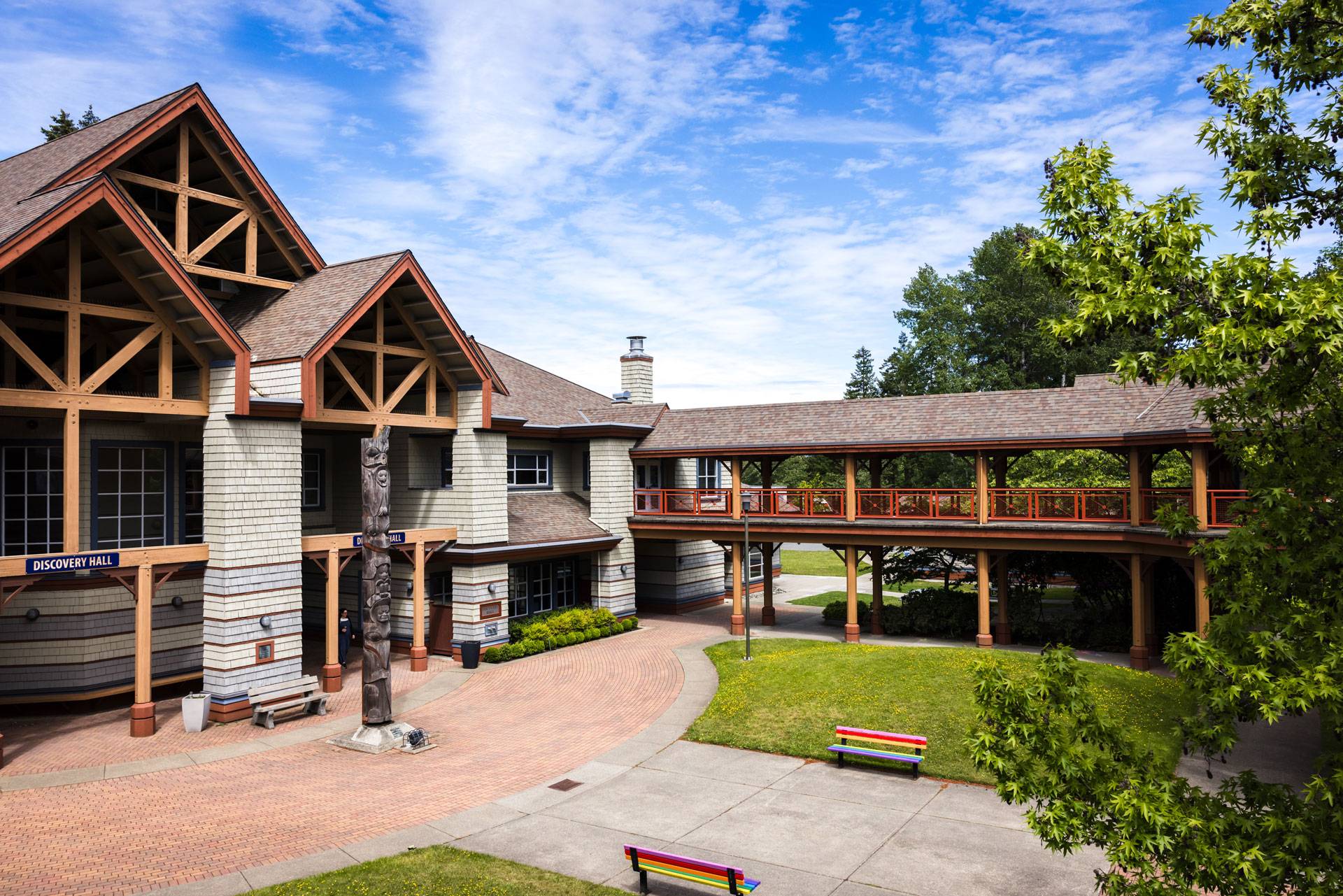On March 16, 2016, the Huffington Post published a report stating that UVic had allegedly silenced the survivors of sexualized violence on campus. This was followed by a Martlet report in April of a first-year student forced to live next door to her assailant, even after the university determined he had committed a sexual assault.
Both stories were part of a nationwide outcry in the early spring of 2016 for universities to revamp their approach to the issue of sexualized violence on their respective campuses.
A response from UVic came quickly. Just two days after the Huffington Post article, President Jamie Cassels issued a statement committing the university to reviewing and changing the university’s policy regarding cases of sexualized violence.
And with that, summer came. Although students left campus and the furor died down, UVic got to work on developing a new policy.
A working group, headed by Annalee Lepp, chair of the Gender Studies department at UVic, was put together in order to fully research the issue of sexualized violence on campus and make recommendations to administration to inform its policy development.
The group has been meeting for three months now, with consultations involving various advocacy groups around Victoria well underway. The group is an expansive one, with members from the UVSS, Campus Security, the Anti-Violence Project, and a number of other administrative offices at UVic.
An interim report, including the early results of those consultations, is set to be released late September. Lane Foster, a recent graduate of UVic and member of the working group as a representative of the student-led Sexualized Violence Task Force, is glad to see progress finally being made on developing a coherent policy.
“[Before the working group], there were five different policies . . . that various offices [around UVic] were drawing from,” said Foster. “Everyone had their own interpretation of what [the policies] meant . . . and it was kind of a mishmash.”
“Even in my own experience with counselling services,” Foster said, “the only thing they talked to me about was Campus Security, and putting [my assailant’s] name in with them. And I was like, ‘Is that it? Where’s the process?’”
The five policies — the Non-Academic Misconduct Policy, the Discrimination and Harassment Policy, the Violence and Threatening Behaviour Policy, and Prevention of Violence in the Workplace Policy — led to confusion and incongruencies around the investigation and prosecution of sexualized violence, which makes crafting a universal and cohesive process a high priority for the working group.
For Lepp, the more people that are consulted in the process, the better.
“The more conversations we can have,” said Lepp over the phone, “the more we learn about the complexity of the barriers that different people experience [when it comes to sexualized violence].”
Lepp said she feels “well supported” by UVic administration, which has a “real appetite” for seeing constructive work done on the issue. She also has the confidence of the members of her working group, with Foster sure that Lepp can make critical and meaningful changes.
“[Lepp] is really thorough,” Foster said, smiling. “She really gives a shit.”
A new policy isn’t the only change being made regarding how UVic combats sexualized violence: the university will also be rolling out a bystander training system to a select number of students. Through a three-hour workshop, students will be instructed on how to respond when they witness acts of sexualized violence or abuse. The training will initially target 1 000 students, with an upcoming online component reaching more UVic students.
There’s a long way to go before any significant policy changes are made; Lepp will make her final recommendations to Cassels in May of 2017. After that, it comes down to the university to create meaningful policy that can make a difference in the lives of those affected by sexualized violence. When it comes time for that, Foster hopes that UVic follow through on its commitment to students.
“It’s really important for the community, honestly, not just Victoria, not just B.C., but on a more of a federal level, to stay engaged with this stuff,” Foster said. “It’s important to make sure that these institutions, these governments, are actually following through on what they promised . . . [and that] it’s effective.”
Consultations for the working group will continue through September . If you would like to add your input, go to uvic.ca/info/sexualizedviolencepolicy/about/contact/index.php. Written feedback can also be submitted here.






